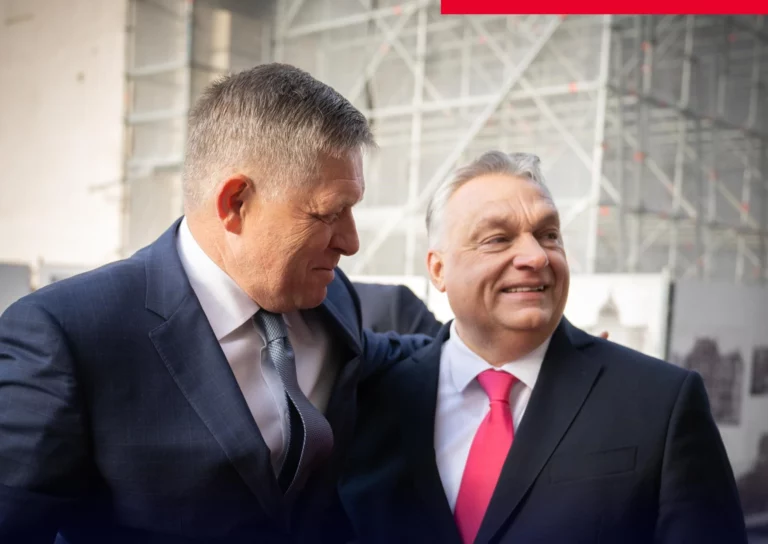Slovakia
Hungary becomes regional distributor of Russian gas, generating windfall revenues

Russian gas supplies through Ukraine to Europe face sudden halt – Unexpected opportunity for Hungary?

Hungary overtakes Slovakia in new EU ranking, but challenges remain

Shocking decline: How Hungary fell behind its neighbours after joining the EU

End of Orbán-Putin partnership? Russian President can start peace talks in Slovakia, not in Hungary
Russian President Vladimir Putin told reporters at a press briefing in St. Petersburg that Slovak Prime Minister Robert Fico expressed...
Russia’s decision: Hungary and Slovakia on the list of unfriendly countries
Hungarian foreign minister lambasts EU ‘hypocrisy’ on Georgia

PM Orbán ‘has betrayed’ Hungarians in Slovakia, Former PM Gyurcsány’s DK says

Slovak interior minister: Possible Hungarian terror attack against the Friendship crude oil pipeline

Slovak PM Fico may sacrifice his good relations with PM Orbán to keep his governing coalition

According to FM Szijjártó, there is no threat to Hungarian minority language rights in Slovakia

Hungary calls for stronger Visegrád cooperation and economic integration at V4 Business Conference

Slovakia assures Hungary that the new Slovak language law will not curtail Hungarian minority rights

New Slovak bill would ban Hungarian language use on trains, buses, trams, and post offices

Surprisingly, Hungarians are not only going to the West to work

Hungary’s foreign minister addresses Slovakia’s language law: protecting ethnic minorities amid rising tensions

Slovakia terminates decades-old citizenship agreement with Hungary

Orbán: The West is panicking over migration, the greatest problem threatening to pull the EU apart





 ZH
ZH IT
IT DE
DE HR
HR NL
NL FR
FR JA
JA RO
RO RU
RU ES
ES TR
TR
